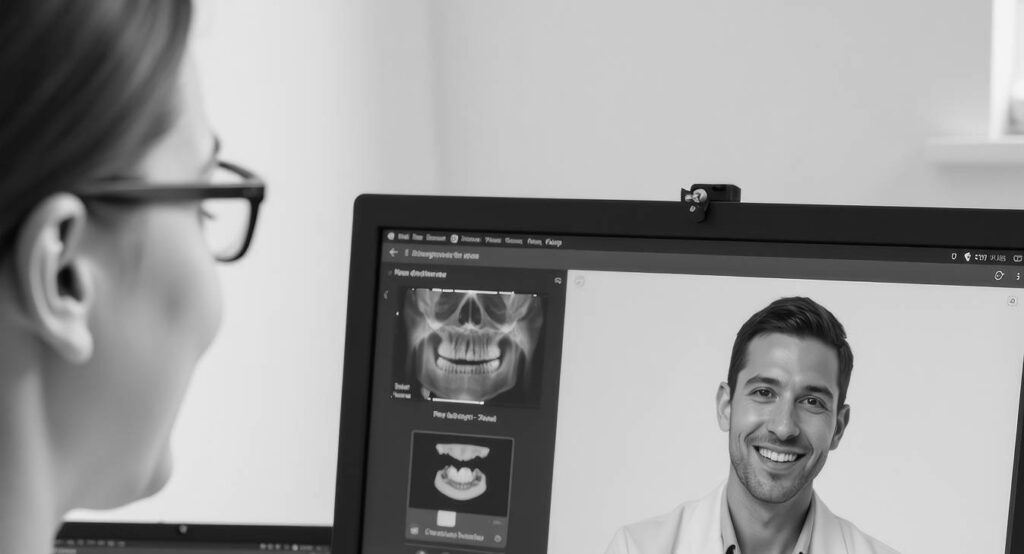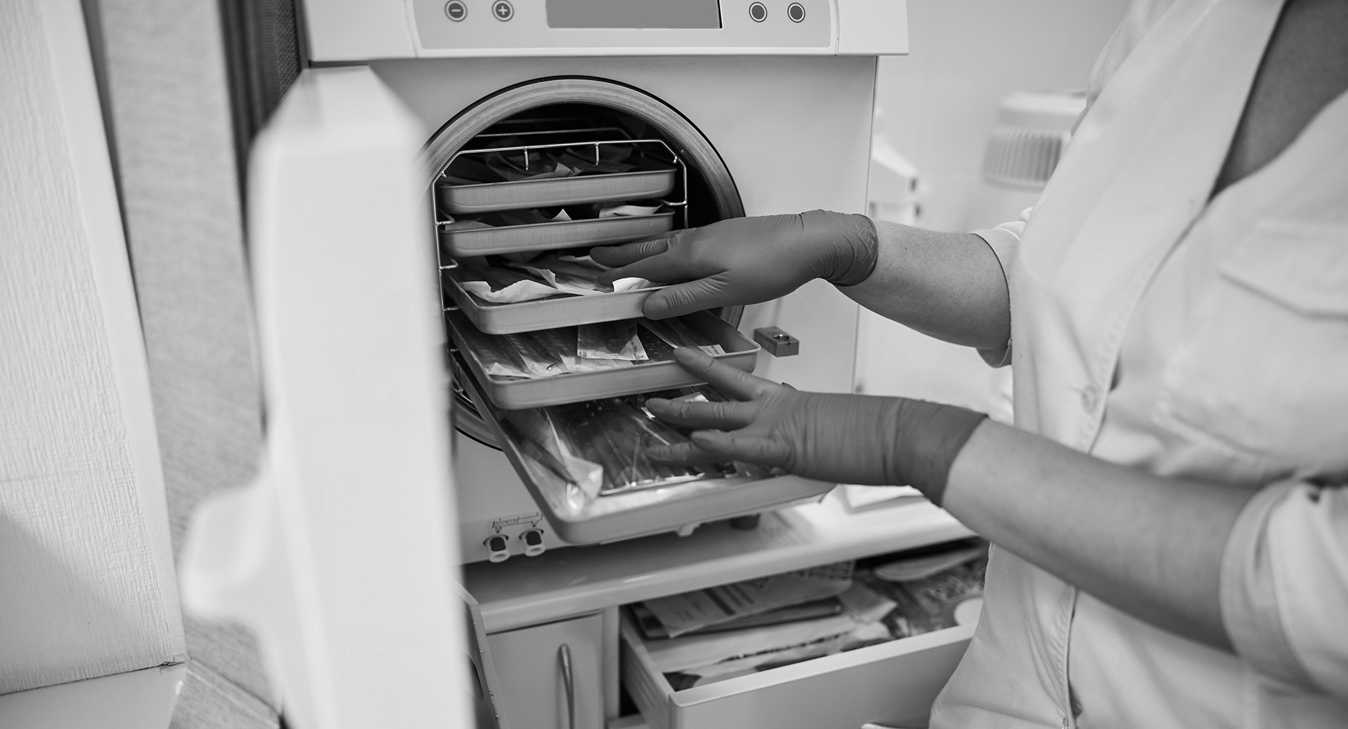Why Choose a Dental Clinic in Argentina?
Many people look to Argentina for dental care due to access to advanced treatments and potential cost savings. In recent years, this has often gone hand-in-hand with the chance to explore a new country.
Aside from choosing a clinic curious about dental care in Argentina in general? Visit our dedicated section to learn more about what to expect and how to prepare.
How to Choose a Dental Clinic in Argentina or Buenos Aires.
One of the most challenging parts of planning dental care abroad is choosing a clinic in a different country. In this section, we aim to guide you through that process — highlighting what to look out for and pointing to some of the strengths many Argentinian clinics can offer.


Dental Safety First.
When considering dental work abroad, your health and safety should always come first. Knowing how to protect that can feel overwhelming. That’s why we’ve created a separate section to help you understand what to look out for — so you can make informed choices and stay safe throughout your journey.
Clinics. Facts. Figures.
Taking time to research the dental clinic you’re considering can make a real difference. Studies suggest that people who skip this step are more likely to face complications after treatment. For example, data shows that around 18% of patients who didn’t research their clinic experienced issues — and about 1 in 5 clinics abroad may not meet international standards for oral care.
Topics to Consider When Choosing a Foreign Dental Clinic.
It is wise to consider a few aspects before making your final decision on the dental clinic abroad where you will get your dental work done. In this section, we briefly outline them.
Safety and Accreditation
Making sure a clinic is accredited helps confirm that it meets international safety standards. This lowers the risk of complications and supports a higher level of care.
Researching accreditation can give you peace of mind — knowing the clinic follows strict protocols designed to protect your health.
Assessing the Quality of Care
Clinics that use high-quality materials and academically proven procedures tend to support better treatment outcomes.
Choosing a clinic that offers advanced technologies and a wide range of services can improve your chances of receiving effective care — and help build confidence in the treatment you receive.
Evaluating Dentist Credentials
Verifying a dentist’s qualifications and experience is an important step. It helps ensure they are certified, professionally trained, and capable of providing competent care. This can increase your confidence in their expertise and reduce the risk of issues during or after treatment.
Check and Consider the Costs
Before committing, it’s important to understand the total cost of your dental treatment — including any hidden fees. This helps you budget effectively and compare options without compromising on quality. Try to get a clear, all-inclusive price upfront, even if your treatment plan is tailored. That way, you avoid unexpected costs later on.
Overcoming Language Barriers
Choosing a clinic with English-speaking staff — or one that offers translation services — can make a big difference. Clear communication helps you stay informed about your treatment and feel more at ease throughout the process.
It’s a key step in building trust and ensuring nothing gets lost in translation.
Requesting a Free Intake
Many clinics offer a free first consultation, giving you the chance to ask questions and get a feel for the clinic — without any financial commitment.
It’s a helpful way to assess the environment, meet the staff, and better understand the services before deciding to move forward.
Checking a Clinics Reputation
Looking at online reviews and patient testimonials can give you valuable insight into a clinic’s reputation.
Hearing about others’ experiences helps you gauge the quality of care and service — and can give you more confidence in your decision.
Plan Your Intake. With a Cosmetic Dentist. Online. For Free.
After reviewing clinics, consider booking a free online intake. It’s a simple, no-obligation way to meet the dental team, ask questions about your needs, and see if the clinic feels like the right fit — all before committing to anything.
Frequently Asked Questions (FAQ) About Choosing a Dentist Abroad.
We gave you quite some information on how to choose a dentist overseas. Below we listed some frequently asked questions and answered them briefly for you.
What key factors most influence you when choosing a dentist?
When choosing a dentist, the key factors to consider and which might most influence your choice are:
- Qualifications and Experience: Ensure the dentist is well-qualified and has significant experience in the specific treatments you need;
- Patient Reviews: Look for positive reviews and testimonials from other patients;
- Location and Accessibility: Choose a dentist with a convenient location and office hours;
- Technology and Equipment: A modern clinic with the latest dental technology often provides better care;
- Cost and Payment Options: Consider the cost of treatments and whether the clinic offers flexible payment plans;
- Personal Comfort: It’s important to feel comfortable with your dentist and their staff, as this affects your overall experience.
How do most people choose a new dentist?
Most people choose a new dentist based on personal recommendations — often from friends, family, or colleagues they trust. Others rely on online reviews, clinic websites, or professional directories to compare services, communication style, and reputation before making a decision.
How to tell if a dentist is good?
Here are a few common signs people look for when evaluating a dentist:
Positive recommendations from other patients
Clear and simple communication about procedures and care options
A clean, well-equipped clinic that meets hygiene standards
A patient-focused approach, making you feel heard and comfortable
Willingness to explain and educate, not just treat
These factors may help you feel more confident in your choice, though experiences can vary from person to person.
What is the difference between a bad dentist and a good dentist?
People often describe a good dentist as someone who takes time to explain your options, personalizes your care, and communicates clearly. A less favorable experience might involve rushed appointments, limited explanations, or treatment plans that feel generic. Listening to other patients’ experiences and observing how well your questions are answered can help guide your impressions.
How do you evaluate a good dentist?
To evaluate a dentist, consider these common criteria:
Verified qualifications and licenses
Positive patient reviews or testimonials
Clinic hygiene and modern equipment
Transparency in communication and pricing
Willingness to answer your questions clearly
These signs can help you feel more informed when choosing a clinic, especially when planning care abroad.
Why is it so hard to find a good dentist?
Finding the right dentist can be challenging because dental care is personal. Each person has different expectations, comfort levels, and care needs. What feels like a good fit for one person may not be right for another. Communication style, trust, and clarity all play a role in making that decision.
How do I know if my dentist is honest?
Here are a few signs patients often look for to assess trust:
Evidence-based explanations, like showing X-rays or photos
Transparency about treatment options, including alternatives
No pressure to accept unnecessary treatments
Consistency in diagnoses, especially when seeking second opinions
These may help you feel more confident in the care you’re receiving, though it’s always okay to seek further information or clarification.
Ask Your Question
At Teeth Traveler, we’re here to share helpful information — not to offer medical advice. This article is for general informational purposes only and does not constitute medical advice, diagnosis, or treatment. Teeth Traveler is not a healthcare provider and does not offer medical services. The clinics listed on our platform operate independently and are responsible for the care they provide. While we aim to offer helpful guidance, readers are encouraged to consult directly with licensed dental professionals before making healthcare decisions or pursuing treatment abroad. No rights may be derived from the information provided on this page. For more details, check our disclaimer and terms of use.
